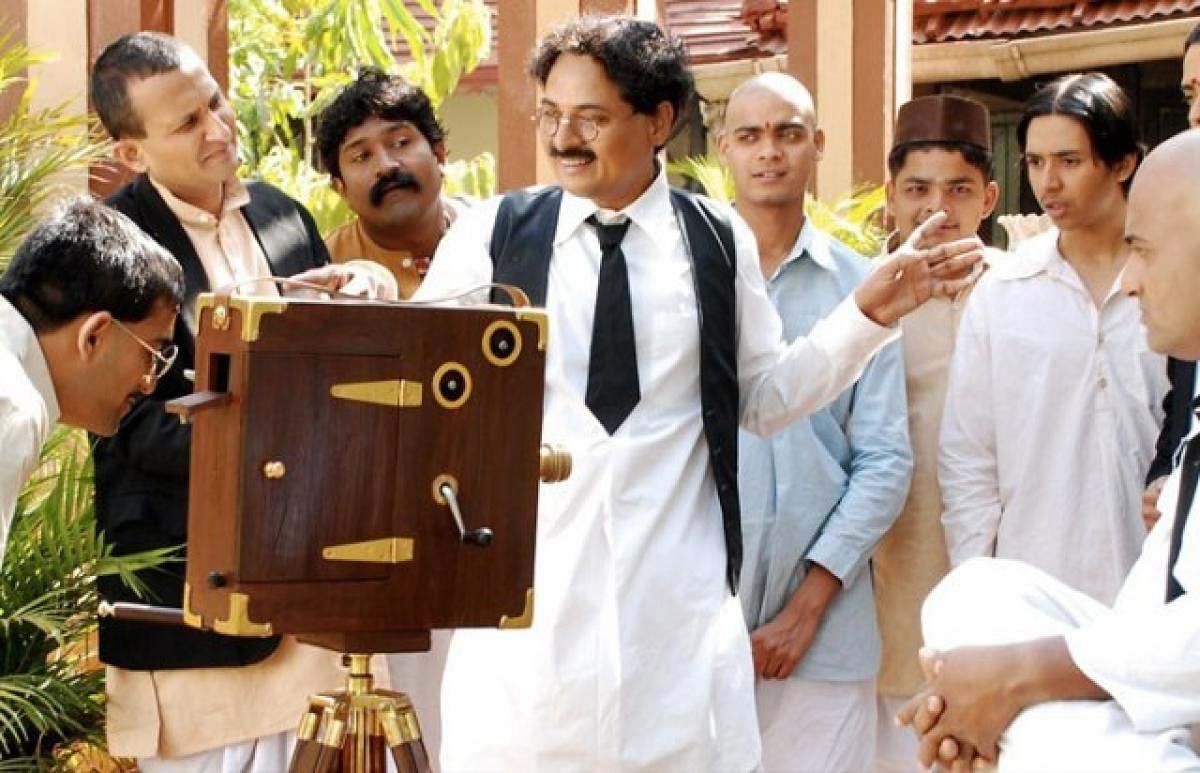
In pursuit of my love for cinema, I decided to go to the Films and Television Institute of India (FTII) in Pune to participate in their film appreciation course, which was a part of their summer camp.
It was a brief one-month course, but it opened the gates of world cinema to me. I was exposed to movies of different genres by the masters. I could watch great classics from various parts of the world, followed by discussions and analysis by well-known filmmakers and critics. This exposure enriched me as an artiste and a student of cinema. I learnt which movies are a must-watch, which features of a film I should observe and how to appreciate the nuances. It was simply a wonderful experience.
One of the movies which left a lasting impression on me was an Indian movie, ‘Harishchandrachi Factory’ — a movie about India’s first film, ‘Raja Harishchandra’ and the struggle of its maker, the legendary Dadasaheb Phalke.
Till then, my knowledge of him was limited. I just knew that he was the pioneer of Indian films and that several film personalities were conferred with a prestigious award named after him, one of whom was our own Kannada thespian, Dr Rajkumar.
After watching the movie, I came to know that when Phalke visited London to get the requisite technical knowledge for filmmaking, he was offered a job there on account of his dedication. But he preferred to come back and make films in India, a path-breaking decision which led to the birth of Indian cinema.
While the movie as a whole was fantastic, there were two scenes which particularly moved and influenced me.
There is a sequence where the awestruck Phalke watches a silent movie so many times that he has to start wearing spectacles. That passion towards cinema and filmmaking was so infectious that after the course, I too started watching Indian and world cinema as much as I could. Coincidentally, I too had to visit an eye specialist after some time, though he just advised me to give some rest to my eyes.
In another scene, while the audience is seen looking towards the screen to watch the movie, Phalke was shown as looking at the opposite side, observing the projector to understand the technique behind the magic of cinema. It motivated me to widen my study of filmmaking technique. I tried to put it into practice by writing and making short films to start with.
There are other happy similarities I share with the legend. I too dream that one day, I shall also contribute to world cinema in a big way. I was born on February 16, exactly 30 years after Dadadsaheb died.
Like him, I too wanted to do something for the film industry, especially in my state. At around the time I started thinking of ways to do this, my mother-in-law, Bharathi Amma, completed 50 years as part of the Indian film industry. An idea struck me that a unique way to celebrate the occasion would be to provide the same film appreciation course to the locals.
We started a weekend course. The faculty included FTII graduates, award winners and well-known cinema personalities. While the students were overwhelmed with the experience, organising the course gave me a sense of fulfilment too.
All of this led us to aspire for establishing a branch of FTII as a part of Dr Vishnuvardhan’s memorial. I feel, when that happens, it would be a fitting tribute to my father-in-law and to the ‘father of Indian Cinema’.